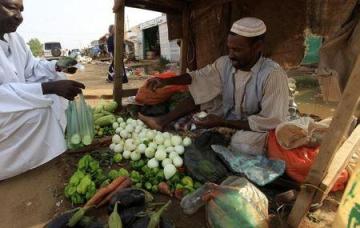Sudan introduces new measures to reduce inflation rate
September 26, 2015 (KHARTOUM) – A senior official at Sudan’s finance ministry said that several measures have been taken to lower the inflation rate in the country.

He added that the new measures aim to exert control over financing and introduce policies to encourage the producers.
Sudan has been struggling with double-digit inflation since secession of the oil-rich south in 2011 but it has succeeded in bringing it down from a high of 46.8% in July 2014 to 25.6% in November of the same year.
Ordinary citizens however continue to complain from cost of living increases that impaired their access to basic commodities.
Earlier this month, the Central Bureau of Statistics (CBoS) announced that inflation rate has dropped from 14.1% in July to 11.3% in August.
ECONOMIC REFORM
Regarding the economic reform program, Dirar said reform is being implemented reasonably, noting that it not necessary to achieve 100% of the economic reform.
“However, we expect to achieve a high proportion of it [economic reform] during the coming period,” he added
In august 2014, the Sudanese government announced the implementation of the five-year program as an extension of the tripartite program, which included the partial lifting of subsidies in 2012 and 2013.
It also agreed to the International Monetary Fund (IMF) Staff-Monitored Program (SMP) to help it achieve a set of economic and financial policies and objectives which include sustaining economic growth, controlling inflation, reforming the banking sector and reducing budget deficit among others.
The SMP is an informal agreement between country authorities and IMF to monitor the implementation of the authorities’ economic program. SMPs do not entail financial assistance or endorsement by the IMF executive board.
DEBT RELIEF
The state minister said that Sudan was unable to benefit from the Heavily Indebted Poor Countries (HIPC) Initiative despite fulfilling its conditions, pointing that the economic sanctions imposed by the United States on Sudan prevent it from obtaining this right.
Sudan’s external debt is estimated to be around $46 billion. Khartoum says it has completed technical and economic requirements for debt cancellation but observers assert that it is difficult for Sudan to secure it without Western backing.
The debit relief requires the unanimous consent of all 55 countries in the Paris Club, a matter that they see as improbable.
(ST)
